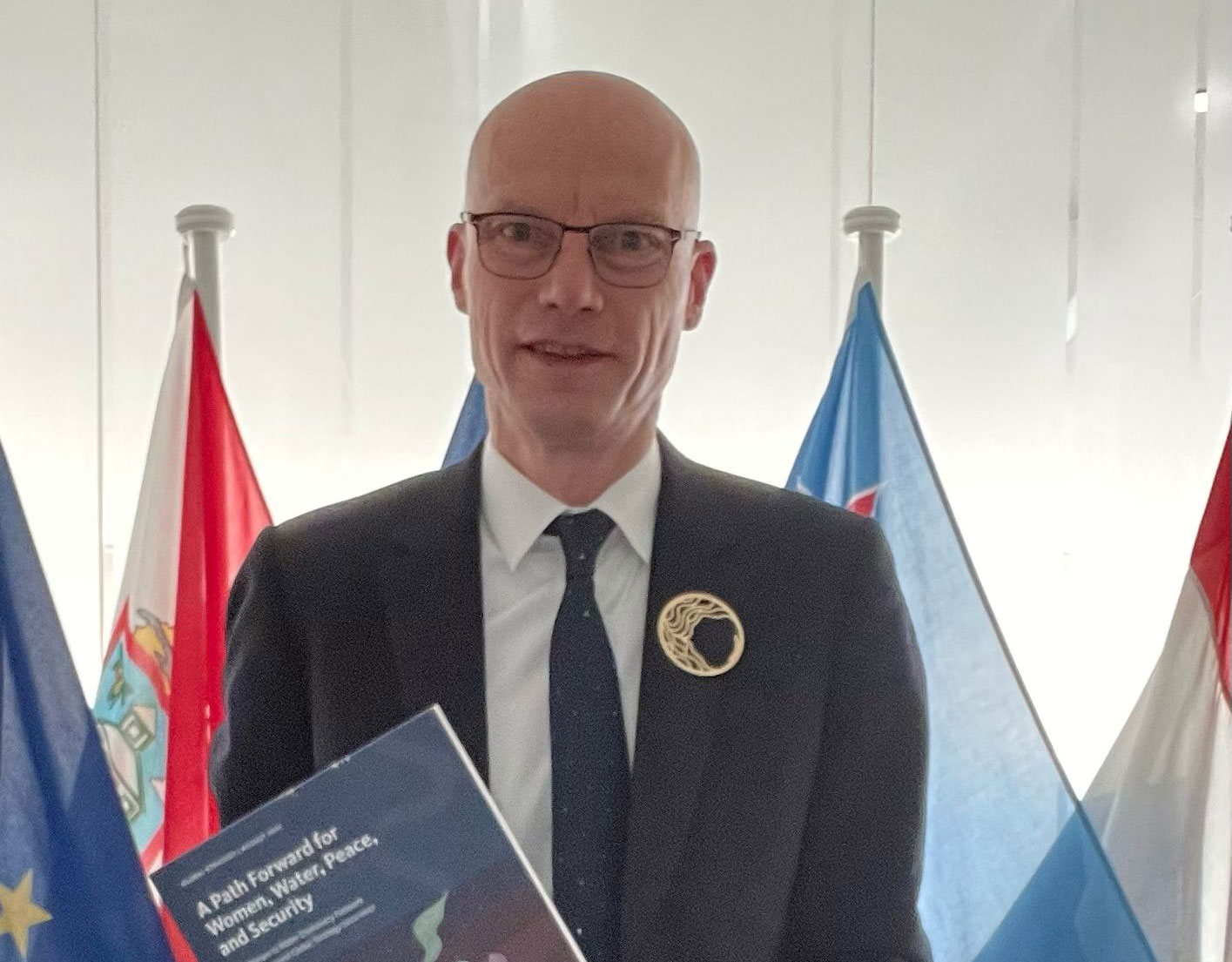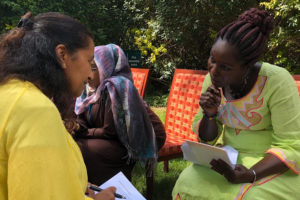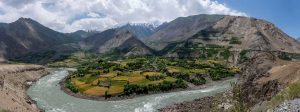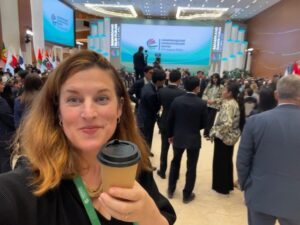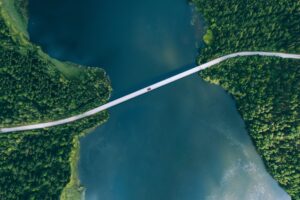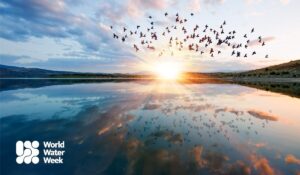Inclusivity is a verb, not a noun. We need the world for water, nothing less.
By Henk WJ Ovink, Special Envoy for International Water Affairs, Kingdom of the Netherlands, and Sherpa to the UN 2023 Water Conference; and Erma Uijtewaal, Advisor Stakeholder Engagement UN 2023 Water Conference, Ministry of Foreign Affairs, the Netherlands
The UN 2023 Water Conference in March this year – co-hosted by the Republic of Tajikistan and the Kingdom of the Netherlands – brought together over 10,000 people in New York at the UN headquarters, from heads of states to mayors, community leaders, women, youth, academics, bankers and private sector leaders. The amount, the breadth and rank of representation and their contributions showed the commitment of the world, the willingness to act on water. This was not a conference with a negotiation, for there is no global agreement on water, no institutional nor political capacity at the global scale. But the world showed it does care, and messaged “we need that structure and agreement, that process to help us deliver on water security for the health and sustainability of our planet, for the equality of our societies, the resilience of our systems, the accountability of our pledges and the economic security for our future.” In other words, the conference must be the beginning, the catalyst for water security for all.
The co-hosts ambition to make the Conference action oriented, cross-sectoral, and as inclusive as possible was not an easy lift. We had to acknowledge that youth, women, indigenous and other grassroot groups are usually underrepresented in global (UN) policy processes. Therefor dedicated efforts are needed to enable their meaningful participation in the Conference so that their voices can be heard, and they are represented on the floor in the debates and deliberations. One of those dedicated efforts included the establishment of a Stakeholder Engagement Fund by the government of the Netherlands. The Fund was designed to enable a meaningful participation of representatives of youth, women, indigenous and other Civil Society Organizations (CSO) and grassroot groups, by funding activities that would contribute to their empowerment and active engagement in the Conference. To make the best use of the available (modest) funding, the Fund aimed to support international and regional networks or partnerships with an ample membership of youth, women, indigenous and or other civil society organizations in the Global South.
A total of 75 pre-selected (network) organizations were invited to submit a request for funding. A total of 63 subsidies were awarded of which the majority (40) included network organizations or international partnerships of the above-mentioned target groups, each with a max amount of EUR 30,000 for their empowerment activities and participation of their members in the Conference. A smaller number of mainly individual organizations (23) were awarded funding (up to EUR 5,000) enabling their youth representatives and or water activists from mainly low-income countries to participate in the Conference by supporting their travel and accommodation costs. Implementation of the Fund was designed to be flexible and responsive to the beneficiaries’ needs, based on trust and avoiding bureaucracy and cumbersome application and or reporting requirements with the preparedness to take a slightly higher risk. The beneficiaries appreciated the swift process, the trust and the (cost) balance between support and administrative requirements.
The financial support provided by the Fund helped the beneficiaries to 1) mobilize their network/ member organizations in preparations for the Conference (information and consultation meetings, joint messaging); 2) coordinate joint efforts in preparation of the Conference i.e. in preparation of joint statements, side events and special events and contribution to the WAA; 3) enable physical participation of southern partners in the Conference and its preparatory process (i.e. in the PGA preparatory meetings, regional consultation meetings such as in the ECLAC meeting in Santiago de Chile; 4) active engagement and contributions during the Conference itself (side events, special events, speakers in interactive dialogues, and in online consultations); 5) develop and implement post-Conference activities (feedback and follow-up meetings, action planning); and 6) ensure media coverage.
Despite the co-hosts efforts to make the Conference as inclusive as possible, the Fund beneficiaries commented on the misbalance in representation of global South and North:” despite the best intentions of the co-hosts it remained very difficult to have global South civil society representatives participate at equal footing”. Coming from our experiences and the feedback we got from our partners, we must invest in inclusivity from beginning to end, and beyond. Inclusivity is not a noun, it is a verb.
Lessons learned, including those elevated in the Women in Water Diplomacy Network’s After-Action Report as well as through feedback from other Stakeholder Engagement Fund beneficiaries will be shared with the UN and all our other partners. We will also continue to promote similar funds in future conferences, because the experiences with the Fund are relevant for learning and promotion of localized funding. Specifically,
- ‘inclusive dialogue and decision-making processes remain very challenging and require targeted resources and dedicated staff to actively remove barriers for participation of marginalized voices’ (Koch and Patel, 2023). We acknowledge that we all must actively promote the importance of ensuring that that the voices of marginalized groups are heard.
- CSO side events are too often hidden in spaces where policy makers do not come. Inclusiveness is not only making sure people can participate but it also includes making space for their voices to be heard. That could have been better.
- We concur that, ‘barriers to inclusive participation are rigid and persistent and must be anticipated as part of process design (Koch and Patel, 2023).’
- Because bringing new voices into high-level decision-making forums is essential. ‘Broader inclusion efforts can also be leveraged by supporting voices and actors long established in the water sector to take a step back and create space for the next generation of water leaders’ (Koch and Patel, 2023).
I was reminded myself again how hard it is not only to be there, but once there to be part, literally be part of the main process. Over 500 organizations, indigenous peoples, water defenders, youth and more joined the global Water Justice Movement to amplify the voices of water defenders and frontline communities and call on all those present at the conference to achieve water justice for all. They wanted to launch the #WaterJusticeManifesto at the Conference but were too late to find a spot in the official program. Thanks to their persistent and dedicated work, and to Patricia Martin Diaz who helped convince me, we were able to work with my dedicated colleague from UN DESA Naiara Costa and the coalition was able to deliver its call in the plenary. Lesson here is that success of inclusivity depends on the commitment of dedicated people to bend the rules, next to changing the system and providing the mechanism (the Fund).
At the core of the conference was the message for water, the need to step up and let this conference not be a one-off, but the start of something bigger. Structured in debated and agreed upon five themes through five Interactive Dialogues, this non-agreement conference was able to galvanize a global message on water for sustainable development, security writ large, equity, climate action and disaster risk reduction, strengthened by the call of the Secretary General of the United Nations to let water never leave the center of the political agenda.
We all know it, it is no rocket science, water is life. Without it we die, polluted it harms our environment and our own health with rippling effects through inequality and climate change. Fresh water availability is in decline, at an unprecedented rate because of over-use and pollution. Our aquifers are under threat and become more polluted and saline. Our glaciers diminish and because of land degradation, deforestation and exacerbated by climate change atmospheric rivers impact across continents the lives and livelihoods of many.
We can and must turn the tide. The over 800 commitments brought together in the Water Action Agenda, the voice of the 10,000 people gathered in New York and the commitment of Secretary General Guterres to come up with a systems approach for water show that we can change course. But it will take a village, with all represented, and thus a spotlight and massive attention on inclusivity at all fronts. The voices of the youth, Indigenous communities and women must not only be heard but galvanized in the processes moving forward and their representation must be guaranteed, no matter what.
The global commission on the economics on water rang the alarm bell. We all heard it ring, we all see the devastating impacts of water insecurity, but we also all know water’s catalytic and transformative capacity: investing in water trickles down across every SDGs, water security is felt in every vein of our society and working on water literally brings together every voice and stakeholder, in every watershed, river-basins or region, across all borders and sectors, matching interests and cultures for water for all. Knowing that water brings us all together it is on us to safeguard inclusivity in all parts of working on water, in the dialogues and negotiations all the way to the design and implementation. The world for water, leaving no one behind.
About the Network
The Women in Water Diplomacy and Water Management promotes promotes women water professionals’ participation in decision-making in the water sector and gender mainstreaming in water governance, inthe Nile region and Central Asia and Afghanistan.
The Women in Water Diplomacy network in the NileWomen in Water Management in Central Asia and AfghanistanA Path Forward for Women, Water, Peace, and Security